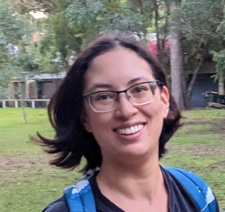From Keyword Chaos to Clarity: Conquering a Complex Systematic Review with Python
Part of the Scientific Python specialist track
How can you find relevant needles in a haystack of 25,000 academic abstracts when keyword searching is useless? I explore how I used Python to automate my way out of systematic review hell.
Systematic reviews are the highest form of scientific evidence – the ultimate summary of all existing studies. I started my PhD thinking that finding the right papers to read was just matter of using the right keywords. But then I ended up with over 25,000 research papers – way too many to read or filter with traditional methods. Impossible, right?
Fortunately, I know Python! Come with me on a journey through the challenges of sifting through mountains of research. I dive into how I used Python to automate finding relevant papers for my systematic review, wrestling with PubMed’s quirky download format, using regular expressions to find all the creative ways people refer to childbirth in the literature, and using LLMs to extract information from the abstracts. I’ll also explain why “NOT ‘dog’” didn’t work for me.
This talk is for anyone who’s ever felt lost in a sea of academic papers, or just wants to hear a story of how Python became my secret weapon in the systematic review process.

Edwina Mead BEng (Hons), MPH, MGH PhD student, UTS Research Assistant, UNSW
Edwina is a PhD student in Public Health at the University of Technology Sydney, where she is combining her software engineering background with cutting-edge health research. She is harnessing Python's powerful data processing capabilities to automate a complex systematic review, synthesising vast amounts of medical literature to create a more holistic understanding of the far-reaching impacts of current maternity practices on women, children, health systems, and even the environment.
In her role as a research assistant at UNSW, Edwina applies Python to rapidly analyse administrative data on ambulance attendances for drowning in NSW. This work has expanded our understanding of the drowning burden in the state, showcasing Python's versatility in public health research.
Edwina's innovative approaches demonstrate how Python can accelerate and enhance research in public health, from streamlining data analysis to increasing the scope and depth of evidence synthesis.
When she's not immersed in code or health data, Edwina can be found wrangling her two young children and playfully introducing them to computational thinking concepts - perhaps nurturing the next generation of Python enthusiasts!